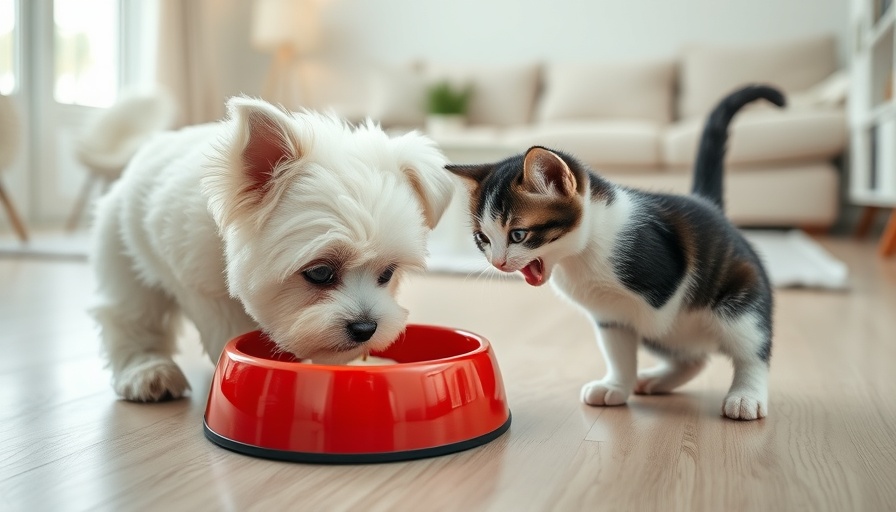
Why Maintaining a Healthy Weight is Vital for Pets
Obesity in pets is a growing concern, particularly in India, where a recent survey highlights alarming misconceptions among pet owners. According to a study by ROYAL CANIN, around 13.25% of pet parents are not aware of the health conditions associated with obesity, while 11.35% believe that being overweight does not impact their pet's well-being. These misconceptions can lead to a lack of awareness about the serious health risks, which include diabetes, joint issues, and even certain forms of cancer. Therefore, keeping our furry friends at a healthy weight is not just a matter of aesthetics; it is essential for their overall health and longevity.
The Role of Misinformation in Pet Obesity
Misinformation is prevalent when it comes to pet care. Many pet owners often equate love with food, leading to overfeeding and offering unhealthy human meals. For instance, treats like chocolate and processed foods can harm pets, but many owners remain unaware of the consequences. This disconnect is exacerbated by a lack of consultation with veterinarians. As noted in the survey, many households still prioritize convenience over the nutritional needs of their pets. Establishing a dialogue with a vet helps ensure that pets receive appropriate diets and portion control tailored to their individual needs.
Exercise: An Overlooked Component
In addition to diet, regular exercise is critical for pet health. Unfortunately, many urban environments in India do not offer adequate spaces for pets to exercise freely. A common barrier to engaging pets in physical activity is the time commitment required. Busy schedules often leave pet owners feeling overwhelmed, which can result in fewer outdoor activities with their pets. Simple steps like incorporating playtime at home or routine walks each day can make a significant difference. Even a 30-minute walk can drastically impact a pet's weight and overall health.
Financial Concerns and Their Impact on Pet Care
The costs associated with proper pet care, including vet visits and purchasing quality food, can deter owners from maintaining their pet’s health. Many individuals hesitate to invest in special diets and high-quality food, often resorting to cheaper, calorie-dense options that lead to weight gain. However, it’s vital to view these expenses as long-term investments in pet health. Additionally, prioritizing preventive care, such as regular check-ups, can lead to lower healthcare costs down the line. Pet insurance can also alleviate some of the financial burdens associated with veterinary care.
Practical Steps for Healthy Pet Weight Management
Promoting a healthier lifestyle for pets involves actionable steps that pet owners can implement immediately. Here are a few tips:
- Portion Control: Measuring food portions according to guidelines can help prevent overfeeding.
- Regular Vet Visits: Schedule annual check-ups to track weight and receive advice on dietary needs.
- Active Lifestyle: Engage your pet in fun activities that encourage movement, such as fetch or agility exercises.
- Education: Stay informed about pet nutrition and health through workshops and online resources.
The Future of Pet Health Awareness
As pet ownership continues to grow, so does the responsibility of ensuring our furry friends lead healthy lives. Public awareness campaigns and community initiatives focusing on responsible pet ownership can motivate owners to take a proactive approach towards managing their pets’ weight. By demystifying pet care and addressing common misconceptions, we can pave the way for healthier households and happier pets.
As pet parents, it’s clear we all desire the best for our companions. By acknowledging the importance of a balanced diet, regular exercise, and appropriate veterinary care, we can combat pet obesity and give our beloved pets the joyful and healthy lives they deserve.
 Add Row
Add Row  Add
Add 




 Add Row
Add Row  Add
Add 

Write A Comment